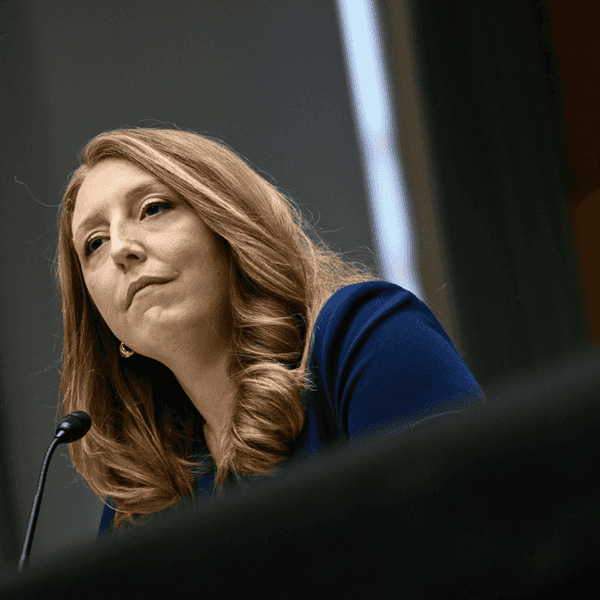
By Raja Abdulrahim, Los Angeles Times
ATARIB, Syria — As the Syrian government warplane flew overhead, Malik Abu Iskandaroon ran to a storage room and grabbed a Russian-made surface-to-air missile.
Moments later, on the roof of the three-story villa, which serves as air force headquarters for the Harakat Hazm rebel group, he squinted at the threat in the sky.
Missile launcher resting on his shoulder, Abu Iskandaroon prepared to fire. But in the end he refrained, as the Sukhoi fighter jet flew by, miles out of range of his older-generation weapon. As he stood by helpless, the plane fired one rocket toward the town, killing four people.
The Russian-made Igla missiles “can strike a target up to 2 kilometers (1.2 miles) away,” said Abu Iskandaroon, who defected from a nearby government battalion. But the government warplanes “don’t fly under 4 kilometers.”
Months ago, Harakat Hazm, along with several other Western-backed Syrian rebel groups, appeared on the verge of receiving a strong boost in firepower they hoped would tip the balance of the civil war. In the spring, Harakat Hazm, with an estimated 7,000 fighters, became one of the first Syrian opposition militias to receive a shipment of American-made BGM-71 TOW antitank missiles.
But the U.S. weapons shipments proved to be very few. The advanced weaponry they’d hoped for never arrived.
“It was supposed to be a positive sign for additional American aid,” Harakat Hazm commander 1st Lt. Abdullah Awda said. “But as a missile, it is just a missile like what we were already using.”
Islamic State’s recent advances in northern and eastern Syria have added urgency to the question of delivering new arms to Syrian rebels, to help combat an extremist group now seen as a significant international threat. But the firepower supplied by the West has proved inadequate, and so has the pace of supply.
As the U.S. considers the possibility of launching airstrikes in Syria against the Al Qaeda breakaway group Islamic State, President Obama this week emphasized the need to more effectively support moderate rebels in Syria. But commanders on the ground say they have not been included in any discussion of U.S. airstrikes or additional weapons, underscoring the shaky and limited partnership the Americans have with their only Syrian allies.
“There is no coordination. We have no news… we have no details,” said Jamal Maroof, commander of the Syrian Revolutionaries Front, another TOW recipient with fighters in northern and southern Syria.
Congress has yet to approve a $500-million arms and training program proposed by President Obama in June, and the rebels — Western-backed as well as other groups — continue to mostly rely on outdated spoils of war seized from the Syrian army in their fight against the government of President Bashar Assad.
“You can’t defeat ISIS with airstrikes only in Iraq; ISIS has a stronger base in Syria and controls large parts of the country,” said Hussam Marie, a spokesman for the U.S.-backed Free Syrian Army, referring to Islamic State by a common acronym. He added that airstrikes alone in Syria on Islamic State would not be enough to dislodge the group.
“There is no way to battle ISIS without supporting the Free Syrian Army,” he said. “We tell them that, but what is strange is our voice doesn’t have much influence among our friends of Syria.”
Now, with the Obama administration rushing antitank weapons and other arms to Kurdish fighters in northern Iraq to offset the swift advances by Islamic State there, Syrian rebel groups are growing increasingly impatient and demoralized as their situation continues to deteriorate.
A select few rebel groups examined and “vetted” for U.S. help have received a total of only a few dozen TOW antitank missiles, so few that they can be used only sparingly, resulting in a minimal effect on the battlefield.
The U.S.-supplied missiles, they say, lack the power and range of newer weaponry. In most cases, many complain, they are no better than the Russian weapons the rebels have seized from Syrian government bases.
Fighters who have been trained covertly in Qatar by the CIA spend days if not weeks scoping out a target for the TOWs.
More than two months ago, when a convoy of 10 Syrian military tanks progressed along a government road toward rebel positions in Aleppo, Harakat Hazm used a TOW to destroy the first tank and stalled the convoy’s advance for 10 days. The group later destroyed four or five more tanks and armored vehicles with the antitank weapons.
But the attack merely delayed the government advance. In July, government forces seized control of the strategic Industrial City neighborhood and are now only a few miles from surrounding rebel neighborhoods.
Another group that received TOW missiles used them near the Industrial City front line recently to destroy a bulldozer.
“God is great! God is great!” the rebel fighters shouted in a video of the event posted online, jubilant over the destruction of a machine that appeared to be making berms.
Such limited successes do little to buoy rebels’ spirits as the conflict drags on. Driving toward the front line recently, Harakat Hazm fighters Aasim Zeidan and Muhammad Abu Matar discussed not their hope for victory but the futility, so far, of their fight.
“Abu Matar and I are planning to die as martyrs in the upcoming battle for Aleppo, because that’s it, we just want to be done with it,” Zeidan said. “It’s been three years, and … we haven’t accomplished any victory.”
In Iraq, the CIA until recently covertly funneled weapons to Kurdish fighters. The Kurds are longtime allies of the United States and their ability to counteract the threat of Islamic State is seen as vital to American interests. The arms supply to the Kurdish troops has recently been taken over by the Pentagon, a transition that Syrian rebels would like to see replicated with them.
It is the difference between a secret program whose existence the White House can deny and the “foundation for a partnership,” said Oubai Shahbandar, a communications advisor for the opposition Syrian National Coalition.
One concern on the part of the Obama administration is that the Syrian rebels could lose advanced Western-made weaponry to Islamist extremists.
Those concerns have intensified since July, when a Malaysian airliner was shot down over war-racked eastern Ukraine, most likely by a pro-Russia separatist who had come into possession of a sophisticated antiaircraft missile. Nearly 300 civilians died.
Another issue is that the reliability of Syrian rebel groups allied with the West is sometimes not clear-cut, particularly when the groups must frequently make compromises with groups blacklisted as terrorists by the U.S. to remain viable.
Outside Syria, members of the political opposition who have helped facilitate the weapons transfers to the fighters play up the groups’ moderation and secular agenda in hope of securing more advanced armaments. But inside Syria, such characterizations have become a burden that fighters try to shrug off.
Harakat Hazm, for example, has struggled with being regarded as a U.S. pawn and labeled as secular in the midst of an opposition movement that has grown increasingly Islamist.
“Inside Syria we became labeled as secularists and feared Al Nusra Front was going to battle us,” Zeidan said, referring to an Al Qaeda-linked rebel group that has been designated by the U.S. as a terrorist organization. Then he smiled and added, “But Nusra doesn’t fight us, we actually fight alongside them. We like Nusra.”
In July, eight West-backed rebel brigades — all recipients of military aid — released a statement of “rejection of all forms of cooperation and coordination” with Al Nusra Front. Harakat Hazm was one of the signatories, even as it fought on the same front lines with the group in Aleppo, battling both Islamic State militants in the north and government forces seeking to retake the city.
Beleaguered rebels say the failure of the U.S. to deliver adequate weapons leaves them unable to refuse whatever allies come their way, including those with opposing politics.
Some shipments of TOWs, Awda said, have contained only three or four missiles, and the more sophisticated weapons haven’t come at all.
“They said they want to give us [antiaircraft] Stingers but they need to trust us first,” said Abu Matar.
Abu Matar, who like Zeidan was trained in Qatar by Americans, said he had already spent more than two years fighting, and didn’t learn anything new.
“They just wanted to see us,” he said.
“See what our thinking is,” added Abu Iskandaroon.
At a warehouse at the front line, fighters peer through small openings at a heavily armed Syrian military compound the rebels have been trying to seize for more than a year. So close, yet out of reach of their current weapons.
Overhead, a warplane circled.
“May God bless them, these donors; really we pray for them,” said local Harakat Hazm commander Amaar Burro, raising a Kalashnikov in his arms.
“Tomorrow we’ll give them olive oil and olives,” Zeidan said.
“Man,” Burro said, “we’ll give them the whole tree if they just help us get rid of” Assad.
AFP Photo/Joseph Eid








